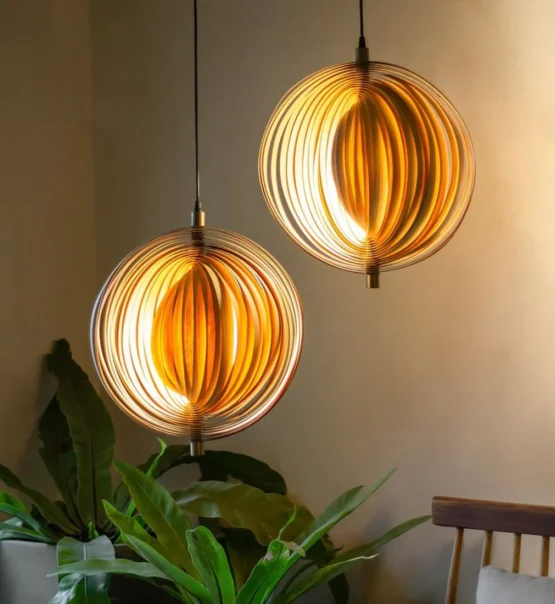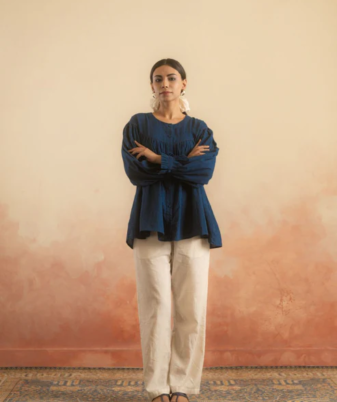Mianzi
While the layout of a home forms its foundation, it's the lighting and furniture that truly transform a space, especially for those who value atmosphere and personal expression. While lighting is one of the immediate tools to open up the most intimate interiors, intentionally picked out furniture can shape its character and reinforce its layout. Mianzi’s range of lamps, chandeliers, seatings, mirrors, wardrobes and consoles echoes this design intent.
Co-founded in 2018 by Sugandha Varshney, Ananta Varshney, and Shashank Gautam, Mianzi is a purpose-led brand that aims to revolutionise and redefine sustainability through the lens of ‘design’. What sets the brand apart is its exclusive use of bamboo as the primary material, as opposed to a multi-material approach, a choice that adds character. Despite bamboo’s natural limitations, particularly its resistance to being moulded or cast like metal or concrete, Mianzi’s product line consistently pushes creativity and challenges its perceived structural boundaries. In many of their pieces, bamboo slats mimic organic forms; arranged, layered, or twisted in ways that demand both precision and high-level craftsmanship. Take, for instance, their signature seashell lamps, where bamboo strips are arranged in a tiered, step-like formation echoing the spiral of a seashell. Their Lotus Stool draws inspiration from the natural contours of lotus petals, reflected in the sculpted design of its legs. A significant portion of their décor range also nods to traditional willow wicker techniques, reimagined through the same material. Underpinning all of this are the skilled artisans—seasoned hands whose deft chiselling, carving, and moulding techniques bring the ideas to life.

The brand’s foundations have been laid gradually, with clear intent, purpose, and direction. Here, sustainability isn’t an afterthought but the very framework on which the brand was envisioned. That vision stems from the founder’s early years spent in a rickshaw repair shop, watching his grandfather apply hands-on craftsmanship and ingenious, improvised solutions. A formative exposure as such to functional, resourceful design went on to shape Mianzi’s core ethos.
Naturally, when it came time to choose a material that could carry this vision forward, it wasn’t just a creative decision but a pragmatic one. Bamboo emerged as the ideal fit–for both practical and environmental reasons. It ticked all the right boxes: sustainability, functionality, and cultural resonance. With India holding the second-largest reserves of bamboo globally, the material presents an opportunity not only for environmentally responsible production but also for boosting livelihoods across multiple states. From cultivation to final application, bamboo is a negative carbon material, widely recognised for its superior environmental performance. Once fully matured, it offers remarkable structural strength, high elasticity and bending capacity, positioning it as a frontrunner in forward-thinking architectural and product design.
Their vision echoes beyond just product design, taking a more creative turn. Co-founders and architects Ananta and Shashank Varshney have also steered the brand into architectural projects, bringing a more expansive, creative dimension to Mianzi. This includes award-winning work like the Makaibari Tea Pavilion in West Bengal and the IGBC-certified Tree House. Most recently, their architectural sensibility crossed into the world of fashion, as they designed the set for Amit Aggarwal’s 2024 show at India Couture Week.
What Mianzi gets just right is its ability to take the material’s inherent honest, bamboo’s natural lustre, raw, ridged textures, and organic character, and elevate it through a refined, contemporary design lens. What stands out is how the brand seamlessly pairs an eco-conscious ethos with thoughtful innovation, proving that sustainability and creativity aren’t opposing forces, but powerful collaborators in shaping modern design.


